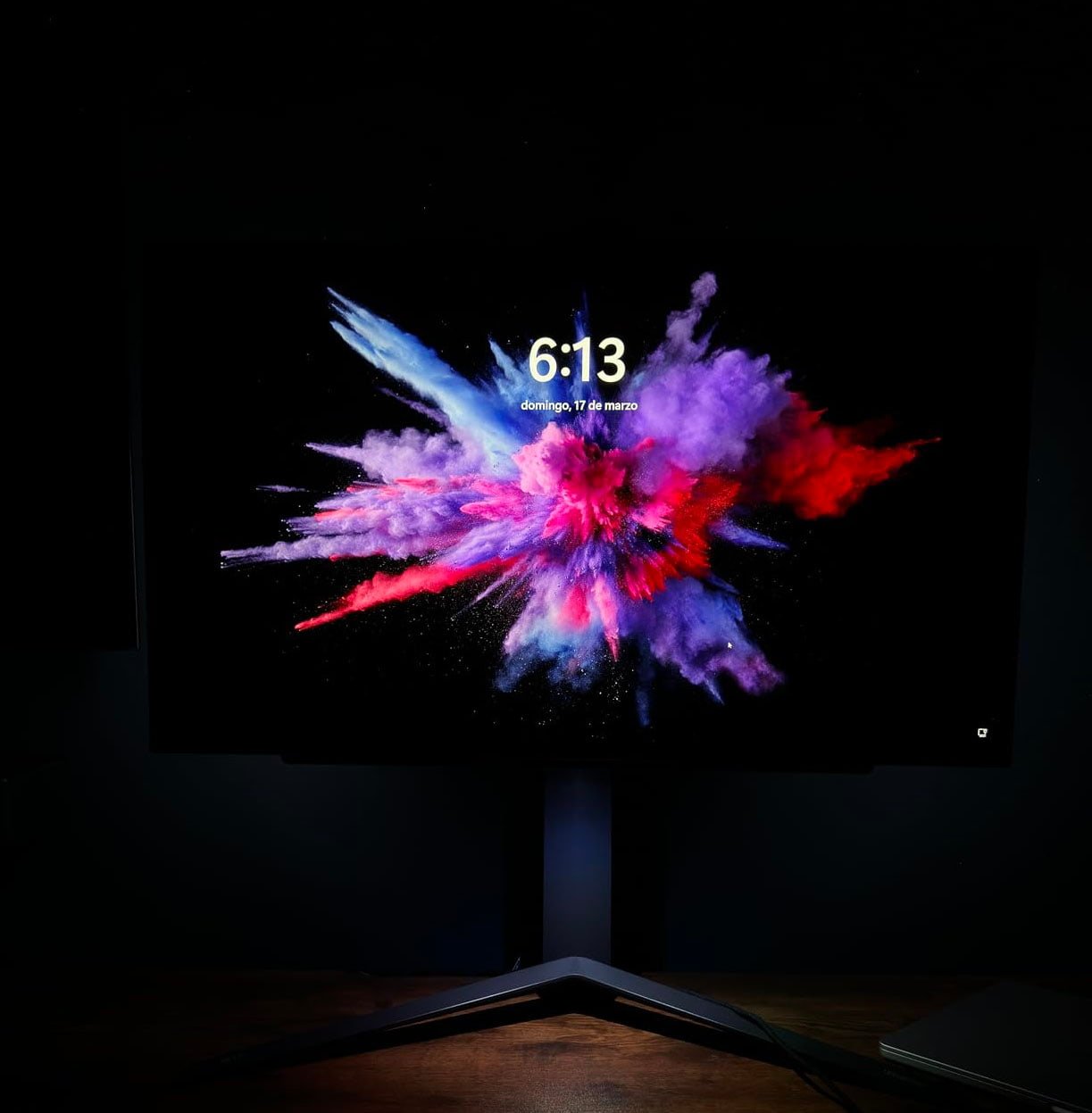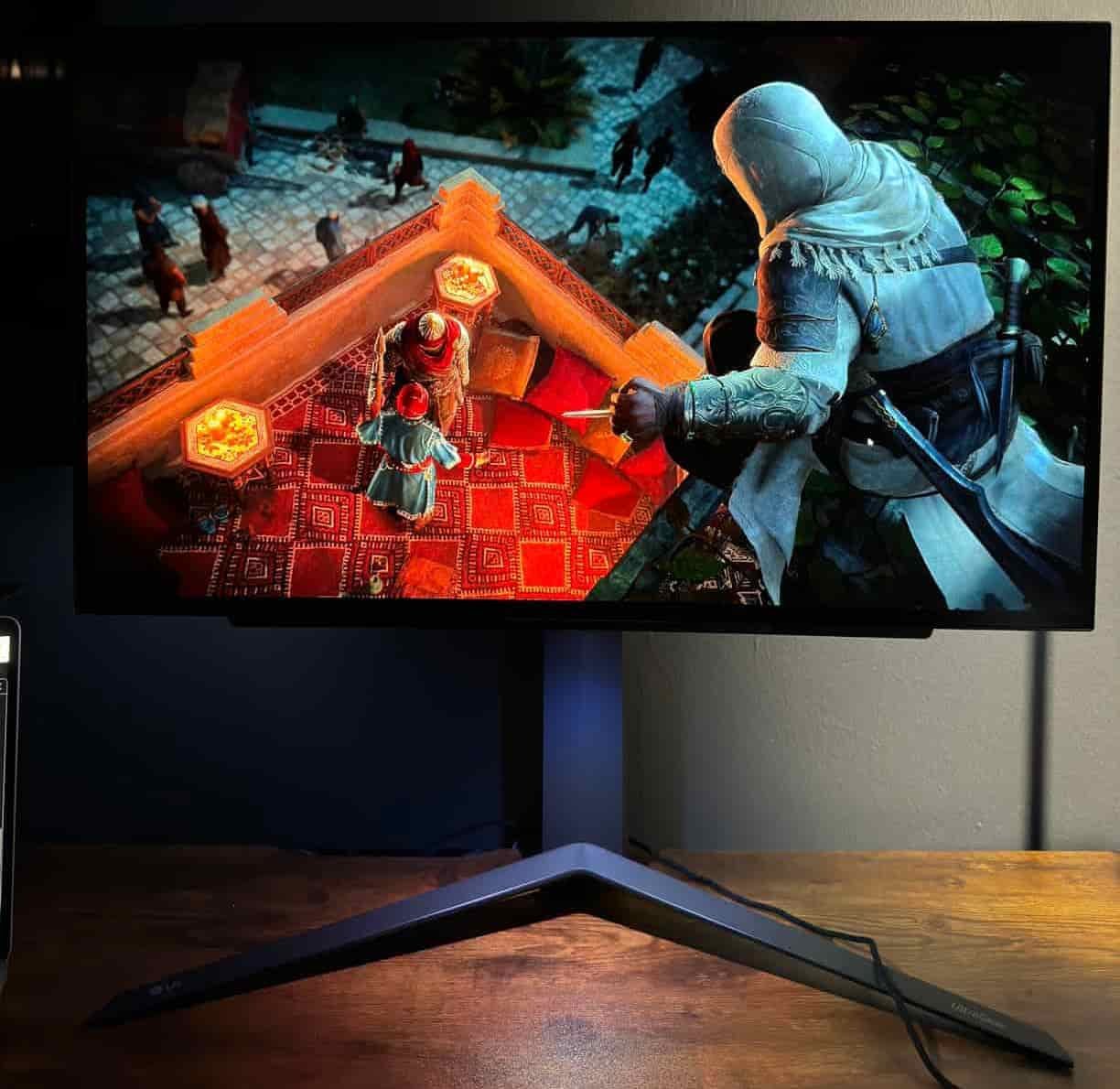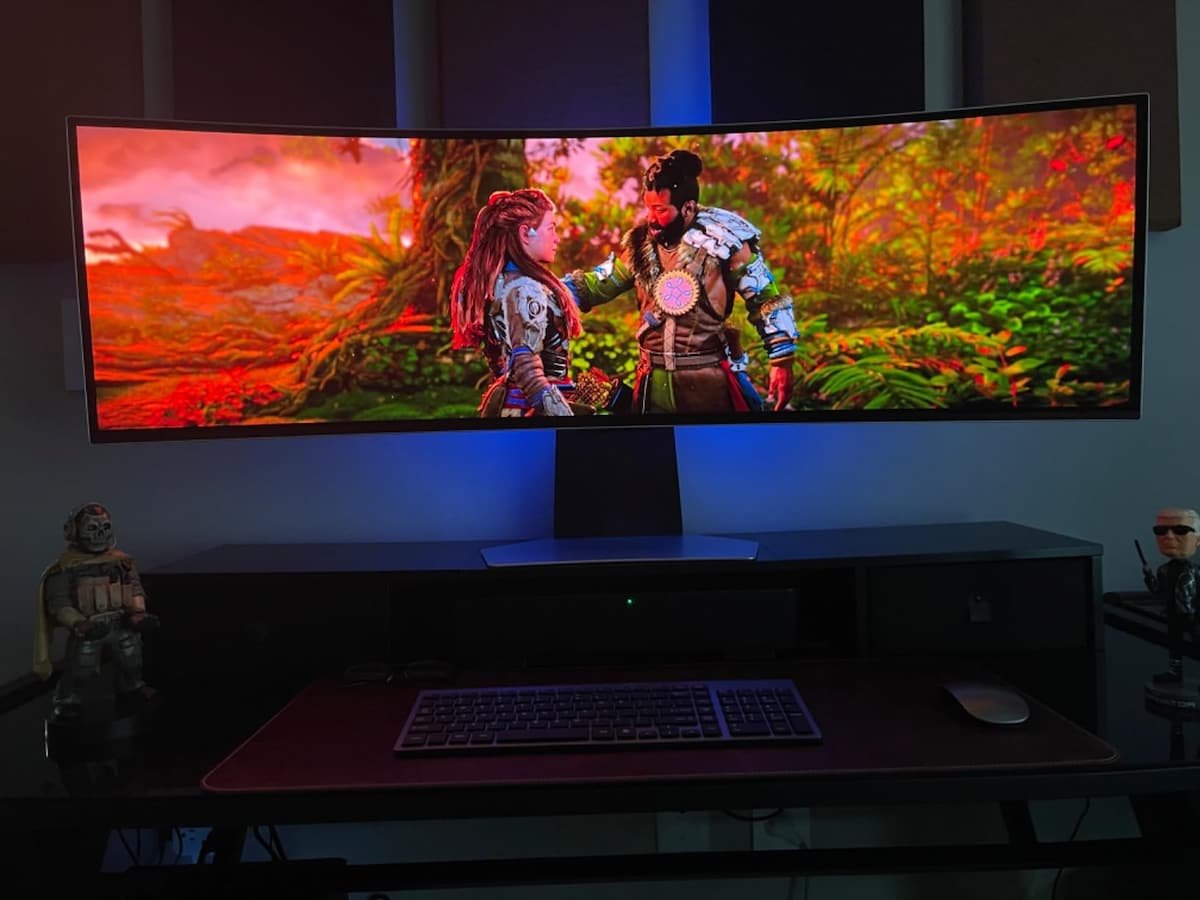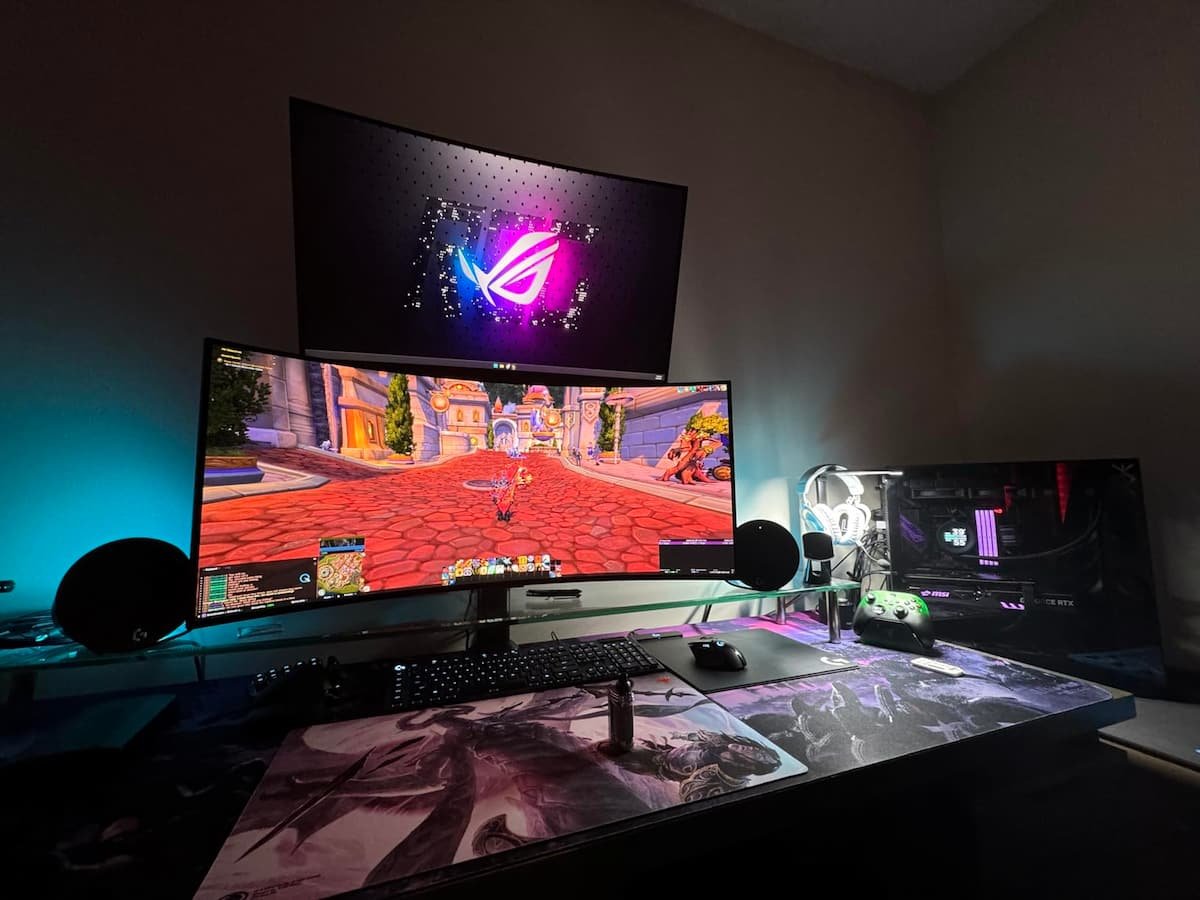If you’ve ever searched for a decent gaming monitor, chances are you’ve bumped into LG and Samsung more than once. And not by accident. These two brands are everywhere—from entry-level setups to ultra-premium battlestations.
But once you get past the logos and marketing talk, the question becomes pretty real: which one is actually better for gaming—LG or Samsung?
I’ve spent a lot of time comparing models, testing features, and reading way too many spec sheets. So if you’re looking for a no-BS answer that skips the hype, you’re in the right place.
LG and Samsung: Both Heavyweights, But Very Different Styles
Let’s get one thing straight—both LG and Samsung make excellent gaming monitors. But they approach things a bit differently.
- LG leans hard into IPS panels, known for their fast response times and wide viewing angles. They’re a top pick for competitive gamers who care about every millisecond.
- Samsung, on the other hand, is famous for their VA panels, especially in curved and ultra-wide formats. They’re all about contrast and deep blacks—perfect if you love cinematic visuals.
So it’s not really a question of good vs. bad—it’s more about what kind of experience you’re after.
Quick Specs Showdown: LG Ultragear 27GR83Q-B vs Samsung Odyssey G50D
To give you a feel for how they compare, here’s a look at two popular models side by side:
| Feature | LG Ultragear 27GR83Q-B | Samsung Odyssey G50D (32″) |
|---|---|---|
| Screen Size | 27 inches | 32 inches |
| Panel Type | IPS | IPS |
| HDR | DisplayHDR 400 | DisplayHDR 400 |
| Resolution | 2560 x 1440 (QHD) | 2560 x 1440 (QHD Wide) |
| Refresh Rate | 240Hz | 180Hz |
| Response Time | 1ms | 1ms |
Both of these monitors offer really solid specs. The LG edges ahead with a 240Hz refresh rate, while the Samsung model gives you more screen real estate. Both use IPS here—so we’re comparing apples to apples in this case.
But once you start looking across their entire lineups, panel types and tech differ a lot more.
IPS vs VA: Why It Matters More Than You Think
LG is practically the king of IPS panels, and for good reason. IPS gives you:
- Faster response times
- Better color consistency
- Wider viewing angles
That makes them perfect if you’re into competitive games like Valorant, Apex, or anything where twitch reflexes matter. But they also work well for content creators and anyone who wants color accuracy without going full pro-grade.
Samsung tends to prefer VA panels, especially in their Odyssey line. VA has slower response times than IPS, but in return, you get:
- Higher contrast ratios (up to 5000:1)
- Deeper blacks and more immersive visuals
- Great for dark scenes in RPGs or horror games
If you mostly play single-player games, or just want your games to look amazing, VA might be your thing.
OLED and Mini-LED: Who’s Leading the Charge?
Both brands are pushing into OLED and Mini-LED territory, which is where things get exciting.

Samsung’s Mini-LED displays—like those found in the Neo G8—deliver excellent brightness and contrast. But LG is also in the game, especially with their OLED gaming monitors like the LG 27GS95QE, which comes with:
- 240Hz refresh rate
- 0.03ms response time
- Absolutely stunning image quality
OLED screens are jaw-dropping to look at, especially for games with deep shadows or flashy lighting. But there’s always the risk of burn-in if you leave the same image on for hours. LG has started implementing screen-shift tech to minimize that, which helps.
If you want bleeding-edge image quality, both brands deliver, but LG has the slight edge on price here.
Resolution and Variety: No Shortage of Options
Whether you want 1080p, 1440p, or 4K, both LG and Samsung have you covered.
- LG’s Ultragear line ranges from budget 1080p monitors like the 27GN600-B (great for fast-paced shooters), all the way to 4K beasts for creators and enthusiasts.
- Samsung offers similar variety, but is especially strong in curved and ultra-wide formats—if you want something immersive like the 49-inch Odyssey G9, that’s their playground.
Bottom line: You’ll find every resolution on both sides, but Samsung goes bigger (literally), while LG leans sharper and faster.
Refresh Rates: Smoothness Where It Counts
If you care about buttery-smooth gameplay—and who doesn’t—refresh rate is crucial.

LG has really embraced 240Hz panels, even on OLED models. Their high refresh models feel extremely responsive, with no ghosting or stuttering. Even their cheaper 144Hz monitors hold up really well.
Samsung offers a bit more range here, from 100Hz on entry-level monitors to 240Hz on higher-end models like the Neo G8. But be aware: not all Odyssey models are built equally. Some have amazing motion clarity, others—not so much.
If refresh rate is your #1 concern, LG is usually the safer bet across the board.
Gaming Features: G-Sync, FreeSync & HDMI 2.1
Modern gaming monitors need to support variable refresh rates—especially if you’re on a PS5, Xbox Series X, or a powerful PC.

The good news is that both LG and Samsung support:
- AMD FreeSync Premium / Pro
- NVIDIA G-Sync compatibility
- HDMI 2.1 on many models
But here’s the catch: LG tends to include these features even on more affordable models. Samsung, meanwhile, often locks G-Sync support behind their higher-end displays.
So again, LG offers better value for money, especially if you’re gaming across console and PC.
Ergonomics and Build
Both brands offer height-adjustable stands, tilt, swivel, and VESA compatibility on most models. But LG monitors often come with a cleaner, simpler design that blends into most setups.

Samsung’s Odyssey line has a bit more of a “gamer aesthetic,” which some people love and others… not so much.
Pricing: Where LG Pulls Ahead
Let’s talk money—because in the end, that’s often what makes or breaks the deal.
- You can grab an LG Ultragear 1080p IPS monitor with 1ms response for under $300.
- Want OLED? The LG 27GS95QE goes for around $700, with 240Hz and near-instant response.
- Samsung’s Odyssey G5 is $330, but doesn’t support G-Sync.
- Their OLED and premium models (like the 49-inch G9) go well over $1200.
In short: Samsung is more expensive at the high end, and LG delivers better value for most people—especially if you’re not trying to spend a fortune.
Final Verdict: LG vs Samsung Monitors — Which One Should You Choose?
So, is there a clear winner in the LG vs Samsung monitors debate?
Yes—and no.
Both brands have their strengths. Samsung nails contrast and immersive visuals, especially with VA panels and ultra-wide displays. But LG shines in raw performance, fast refresh rates, and sharp color accuracy with IPS and OLED screens.
If you’re a competitive gamer, or someone who wants the best balance of speed and color without overspending, LG is probably your best bet. Their monitors are responsive, well-priced, and loaded with gaming features—even at mid-range levels.
But if you’re all about immersion, big curved screens, or stunning contrast in single-player games, you might want to take a serious look at Samsung’s VA or Mini-LED models.
Bottom line: You won’t go wrong with either, but if you’re after performance, value, and reliability—LG takes the win for most gamers.